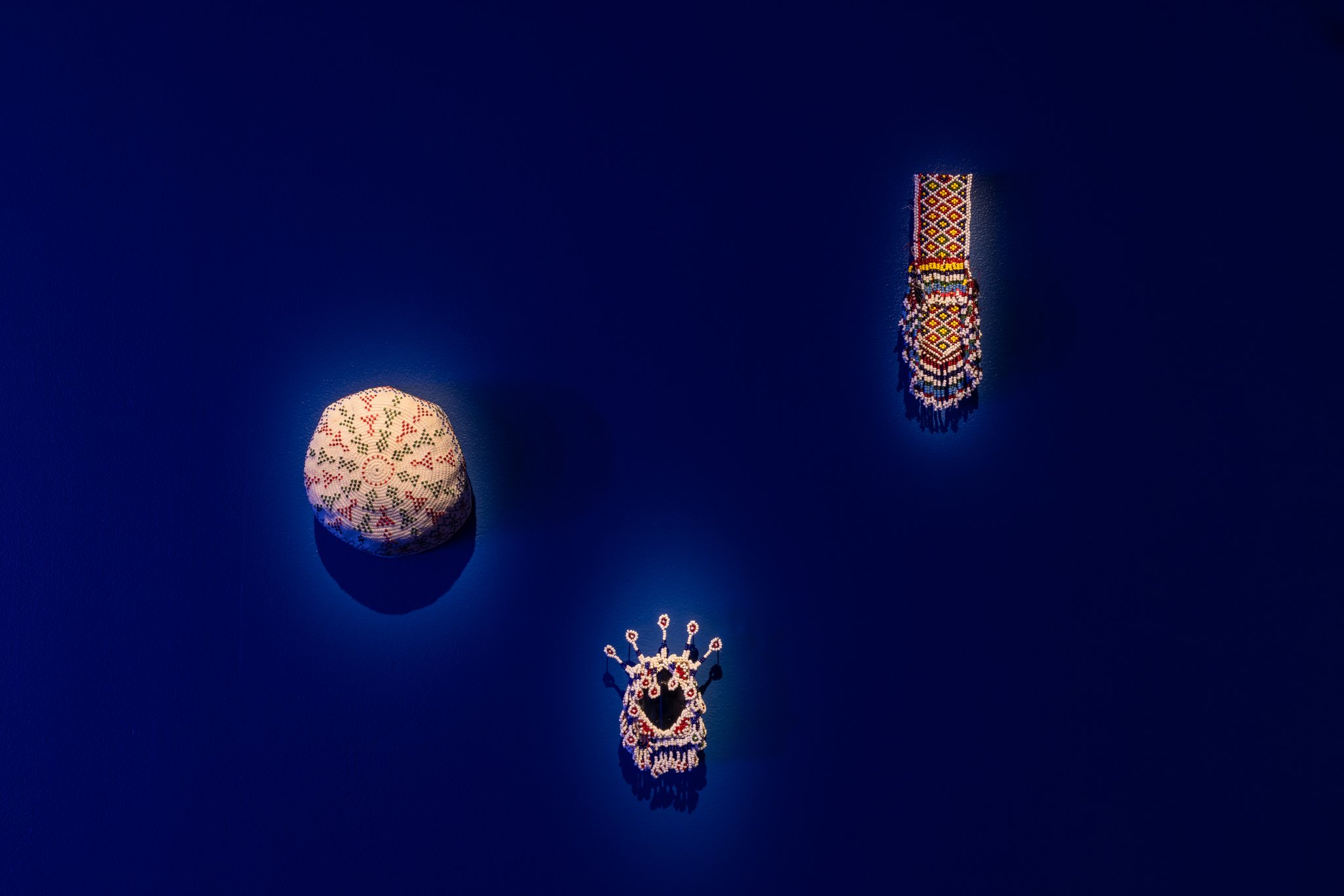




















Visual Artist & Poet
The Sound of Silence /صدای سکوت
2024, rubab instruments, neon
Commissioned by the Biennale of Sydney & Art Jameel
currently showing at UNSW Galleries as part of 24th Biennale Sydney curated by Inti Atawalpa & Cosmin Costinas
......................................
In a trip to Broken Hill town, I saw a rubab instrument that one of the Cameleers brought with him from today's Afghanistan or Pakistan (image 2). This inspired me to research further and creat two new body of work. To my surprise I found out who was the rubab player. He was known as "Kai Shirdel" who passed away 75 yrs ago. I met his 85 yrs old son "John Shirdel". In image 3, he is holding a photo of his father and mother in front of their family house in Broken Hill.
در سفر به نقطه ای دوردست در استرالیا، ربابی را دیدم که یکی از ساربانان بیش از صد سال پیش با خود به استرالیا آورده بود. این بهانه ای شد برای تحقیق و ساختن مجموعه ای چیدمان و کلاژ. در نهایت توانستم نام و عکسی از نوازنده رباب بیابم "کای شیردل". به احتمال زیاد نام کوچکش تغییر داده شده باشد. تنها بازمانده خانواده فرزند 85 ساله اش، "جان شیردل" هست که در عکس سوم، عکس پدر و مادرش را نشان می دهد.
In The Sound of Silence, I have overlaid neon text onto four rubab instruments in a reimagining of the songs and poems that may have accompanied the early cameleers on their travels.
The excerpts reference four different dialects, acknowledging the diversity of languages spoken by the cameleers, and are translated below:
" Let’s go to the city of Mazar Mulla Mohammad Jaan!"
Farsi/Dari language: Excerpt of an old folk song by an unknown female poet from Herat, Afghanistan.
"The camel rider will set off (then you’ll rove in desperate search of your beloved)"
Saraiki language: Excerpt of an old folk song from the Saraiki Baloch people of Pakistan.
"I’m a lover and love is the only thing I know".
Pashtu language: Excerpt of a poem by renowned poet Rahman Baba.
"I seem to have loved you (in numberless forms, numberless times)"
Hindi language: Excerpt of a poem by Bengali poet Rabindranath Tagore.
...... ………………………………………………..
Photo credit :Jacqui Manning
Thanks to Bobby Shamroze, UNSW Galleries
Biennale Sydney, Art Jameel
Vivian_ziherl
The Sound of Silence /صدای سکوت
2024, rubab instruments, neon
Commissioned by the Biennale of Sydney & Art Jameel
currently showing at UNSW Galleries as part of 24th Biennale Sydney curated by Inti Atawalpa & Cosmin Costinas
......................................
In a trip to Broken Hill town, I saw a rubab instrument that one of the Cameleers brought with him from today's Afghanistan or Pakistan (image 2). This inspired me to research further and creat two new body of work. To my surprise I found out who was the rubab player. He was known as "Kai Shirdel" who passed away 75 yrs ago. I met his 85 yrs old son "John Shirdel". In image 3, he is holding a photo of his father and mother in front of their family house in Broken Hill.
در سفر به نقطه ای دوردست در استرالیا، ربابی را دیدم که یکی از ساربانان بیش از صد سال پیش با خود به استرالیا آورده بود. این بهانه ای شد برای تحقیق و ساختن مجموعه ای چیدمان و کلاژ. در نهایت توانستم نام و عکسی از نوازنده رباب بیابم "کای شیردل". به احتمال زیاد نام کوچکش تغییر داده شده باشد. تنها بازمانده خانواده فرزند 85 ساله اش، "جان شیردل" هست که در عکس سوم، عکس پدر و مادرش را نشان می دهد.
In The Sound of Silence, I have overlaid neon text onto four rubab instruments in a reimagining of the songs and poems that may have accompanied the early cameleers on their travels.
The excerpts reference four different dialects, acknowledging the diversity of languages spoken by the cameleers, and are translated below:
" Let’s go to the city of Mazar Mulla Mohammad Jaan!"
Farsi/Dari language: Excerpt of an old folk song by an unknown female poet from Herat, Afghanistan.
"The camel rider will set off (then you’ll rove in desperate search of your beloved)"
Saraiki language: Excerpt of an old folk song from the Saraiki Baloch people of Pakistan.
"I’m a lover and love is the only thing I know".
Pashtu language: Excerpt of a poem by renowned poet Rahman Baba.
"I seem to have loved you (in numberless forms, numberless times)"
Hindi language: Excerpt of a poem by Bengali poet Rabindranath Tagore.
...... ………………………………………………..
Photo credit :Jacqui Manning
Thanks to Bobby Shamroze, UNSW Galleries
Biennale Sydney, Art Jameel
Vivian_ziherl